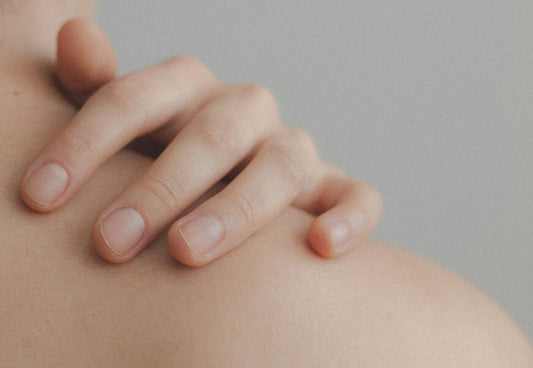
5 Myths About Celiac Disease You Need to Stop Believing
Share
5 Myths About Celiac Disease You Need to Stop Believing
There's a lot of information circulating about Celiac disease and the gluten-free diet, and much of it is often wrong. To mark Celiac Awareness Month, we’ve collected some of these common myths to clear up the misunderstandings.
Myth 1: Gluten is Only Found in Food
Many people believe gluten is only in food, but that's not true. Gluten-containing grains (wheat, barley, rye, oats*) are present in many foods, but they can also be found in other products:
Medications
Some medications may contain gluten as an excipient (filler). While you don't have to worry about vaccines, as gluten only affects us when swallowed, you should always check the patient information leaflet before buying any medication to see if it contains gluten.
Cosmetics
There is no uniform regulation for the "gluten-free" label on cosmetic products. Some products, like shampoos or creams, might be safe (unless you have an allergy), but you need to be careful with **toothpastes, mouthwashes, and lipsticks**.
School Supplies
Some playdoughs or crayons may contain gluten. Young children can put these in their mouths, so it’s wise to choose gluten-free products and always wash your hands thoroughly before eating.
Myth 2: How Celiac are you? (There are no levels of Celiac Disease)
Many people say, "I'm only a little celiac" or "I can skip the diet sometimes." That's not true. **Celiac disease doesn't have degrees**, only the extent of intestinal damage does (Marsh 1-4). Whether you are symptomatic or not, consuming gluten inevitably damages the intestines and can cause problems outside the digestive system too. **A strict, lifelong gluten-free diet must be followed by every person with Celiac disease.**
Myth 3: Celiac Disease is a Childhood Illness
Celiac disease can be diagnosed at any age. It was once considered only a childhood illness, but today it's recognized in many adults too. Symptoms vary by age: children often experience digestive issues (diarrhea, abdominal pain, nausea), while adults frequently present with more extra-intestinal symptoms (neurological, skeletal, hypothyroidism).
Myth 4: A Little Bit is Enough (Minimal Exposure is Harmless)
Gluten consumption always has consequences, regardless of whether it's intentional or accidental. Even if you don't show symptoms, intestinal damage will still occur, which can cause headaches, bone problems, osteoporosis, mental slowness, and in more severe cases, infertility or repeated miscarriages. **Strict adherence to the gluten-free diet is the only treatment.**
Myth 5: The Gluten-Free Diet is a Weight Loss Plan
Many people think the gluten-free diet is a weight loss plan, but this is a misconception. Most gluten-free, ultra-processed products contain more fat and sugar than their conventional counterparts, so consuming them won't lead to weight loss, and might even cause weight gain. The gluten-free diet can be healthy and weight-controlling if you eat **fresh, naturally gluten-free foods** (meat, fish, vegetables, fruits).
These myths often mislead people with Celiac disease and those following a gluten-free diet. It's crucial to be aware of the real facts and manage Celiac disease properly to avoid long-term health damage.



